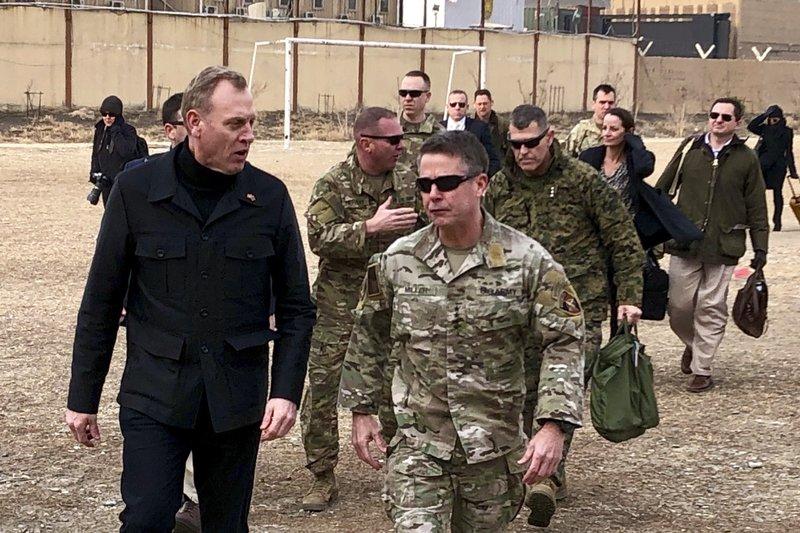Originally appeared at ZeroHedge
As the United States continues its ‘longest war’ in Afghanistan, the US military has elected to stop releasing information often used to measure progress, citing “uncertainty” in the way the data is produced which have resulted in “subjective” underlying assessments.
“The command said they no longer saw decision-making value in these data,” reads a report by the Special Inspector General for Afghanistan Reconstruction (SIGAR).
In remarks to reporters last week, John Sopko, the special inspector general, criticized what he called a trend toward less openness by the military authorities who are advising, training and assisting Afghan security forces. –AP
“I don’t think it makes sense,” said Sopko. “The Afghan people know which districts are controlled by the Taliban. The Taliban obviously know which districts they control. Our military knows it. Everybody in Afghanistan knows it. The only people who don’t know what’s going on are the people who are paying for all of this, and that’s the American taxpayer.”
The move comes amid a stalemate within the Trump administration, as the Pentagon has proposed sending nearly 4,000 more US troops into the conflict, which many in the White House oppose. Some in the White House have even propsed withdrawing completely(i.e. the non-interventionism platform Trump campaigned on) or handing over the American effort to private security contractors.
And as AP notes, the decision to restrict battlefield information is but the most recent step in a trend of less transparency about the war in recent years – often at the insistence of the Afghan government, which has in previous instances stopped the US military from disclosing how many Afghans had been killed in battle, and the overall attrition within the Afghan army.
The latest clampdown also aligns with President Donald Trump’s complaint that the U.S. gives away too much war information, although there is no evidence that this had any influence on the latest decision.
A government watchdog agency that monitors the U.S. war effort, now in its 18th year, said in a report to Congress on Wednesday that the U.S. military command in Kabul is no longer producing “district control data,” which shows the number of Afghan districts — and the percentage of their population — controlled by the government compared to the Taliban. –AP
In January, President Trump criticized the disclosure of battlefield information – telling reporters “Some IG goes over there, who are mostly appointed by President Obama — but we’ll have ours, too — and he goes over there, and they do a report on every single thing that’s happening, and they release it to the public,” adding “What kind of stuff is this? We’re fighting wars, and they’re doing reports and releasing it to the public? Now, the public means the enemy. The enemy reads those reports; they study every line of it.”
Trump then told acting defense secretary, Patrick Shanahan: “I don’t want it to happen anymore, Mr. Secretary.”
When the US military last released battlefield data in January, it revealed that “Afghan government control was stagnant or slipping,” according to the report, which adds that the share of the population under Afghan government control or influence – “a figure that was largely unchanged from May 2017 to July 2018 at about 65 percent” – had dropped in October 2018 to 63.5 percent. The Afghan government’s control or influence of districts overall fell almost 2% to 53.8 percent.
Less than two years ago, a top American commander in Afghanistan called population control “most telling.” Gen. John Nicholson told reporters in November 2017 that he wanted to see the figure, then about two-thirds, increase to at least 80 percent, with the Taliban holding only about 10 percent and the rest contested.
“And this, we believe, is the critical mass necessary to drive the enemy to irrelevance,” Nicholson said then.
Nicholson’s successor, Gen. Scott Miller, believes there already are enough such assessments available to the public, including one produced by intelligence agencies. –AP
“We are focused on setting the conditions for a political settlement to safeguard our national interests,” said Col. David M. Butler, a spokesman for Gen. Miller in a Tuesday email exchange with AP. “The district stability assessment that was previously provided by DOD was redundant and did little to serve our mission of protecting our citizens and allies.”
The Trump administration, meanwhile, has been making a hard push to encourage the Taliban and Afghan government to engage in peace talks after the Taliban launched a recent spring military offensive. The group has refused to speak directly with representatives from Kabul, which they view as a US puppet.
The war in Afghanistan is largely forgotten in much of America, as is the enormous, continuing financial cost. This year the Pentagon budget includes $4.9 billion to provide the Afghan army and police with everything from equipment and supplies to salaries and food. That is one piece of a wider array of “reconstruction” assistance the U.S. government has provided since the war began in 2001, totaling $132 billion. –AP
The United States has spent $737 billion on the war and lost over 2,400 lives, according to the Pentagon.






